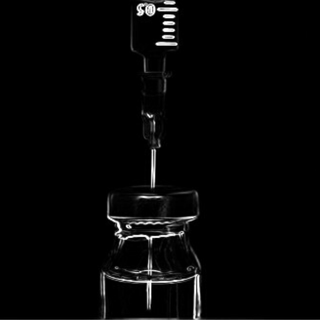Antidepressants, a type of medication used to treat symptoms of depression, anxiety, and other mental health issues, can cause serious withdrawal symptoms when quit cold turkey, according to research published in the The Journal of the American Osteopathic Association.
“I think we have a real problem with patient care management, when it comes to prescribing antidepressants,” the study’s lead author Mireille Rizkalla, Ph.D., an assistant professor at Midwestern University Chicago in the U.S., said in a statement. “We tend to put patients on an SSRI and more or less forget about them.”
Lauren Slater, a science writer, spent almost 30 years on serotonin reuptake inhibitors (SSRIs) — a common, effective antidepressant, and other types of psychotropic medication. In her book, Blue Dreams: The Science and the Story of the Drugs That Changed Our Minds, Slater stated that though antidepressants took away her mental health symptoms, they left her with failing kidneys, diabetes, obesity, and memory loss.
Slater was prescribed SSRIs even though there is no solid research to prove the correlation between serotonin dips and depression. While Slater states that she does not regret taking antidepressants, she told New York Post that, “My lifetime now seems seriously foreshortened, not because of a psychiatric illness, but because of the drugs I have taken to treat it.”
Related on The Swaddle:
Study Suggests Clinical Depression Is a Progressive Disease
Rizkalla added that antidepressants come with quick side-effects like weight gain, sexual dysfunction, and emotional numbing, and that there is no way to know the effect of taking what is supposed to be short-term medication for decades. Rizkalla and her team of researchers recommend taking antidepressants for short-term periods, and slowly tapering off usage rather than immediately quitting cold-turkey in order to avoid Antidepressant Discontinuation Syndrome.
Patients who abruptly discontinue antidepressants may experience Antidepressant Discontinuation Syndrome, which has symptoms like insomnia, nausea, imbalance, sensory disturbances, and hyperarousal. People taking older manufactured versions of antidepressants may face worse symptoms like aggressiveness, catatonia, cognitive impairment, and psychosis. Discontinuing antidepressants can also lead to relapses of depression, anxiety, and suicidal thoughts, often at a more severe rate than what it was pre-medication.
“I understand that many people feel safe in that their depression or anxiety is continuously managed by medication. However, these are mind-altering drugs and were never intended as a permanent solution,” Rizkalla says. “Once the patient’s depression or anxiety has been resolved, the physician should guide them toward discontinuation, while providing non-pharmacologic treatments to help them maintain their mental health.”




